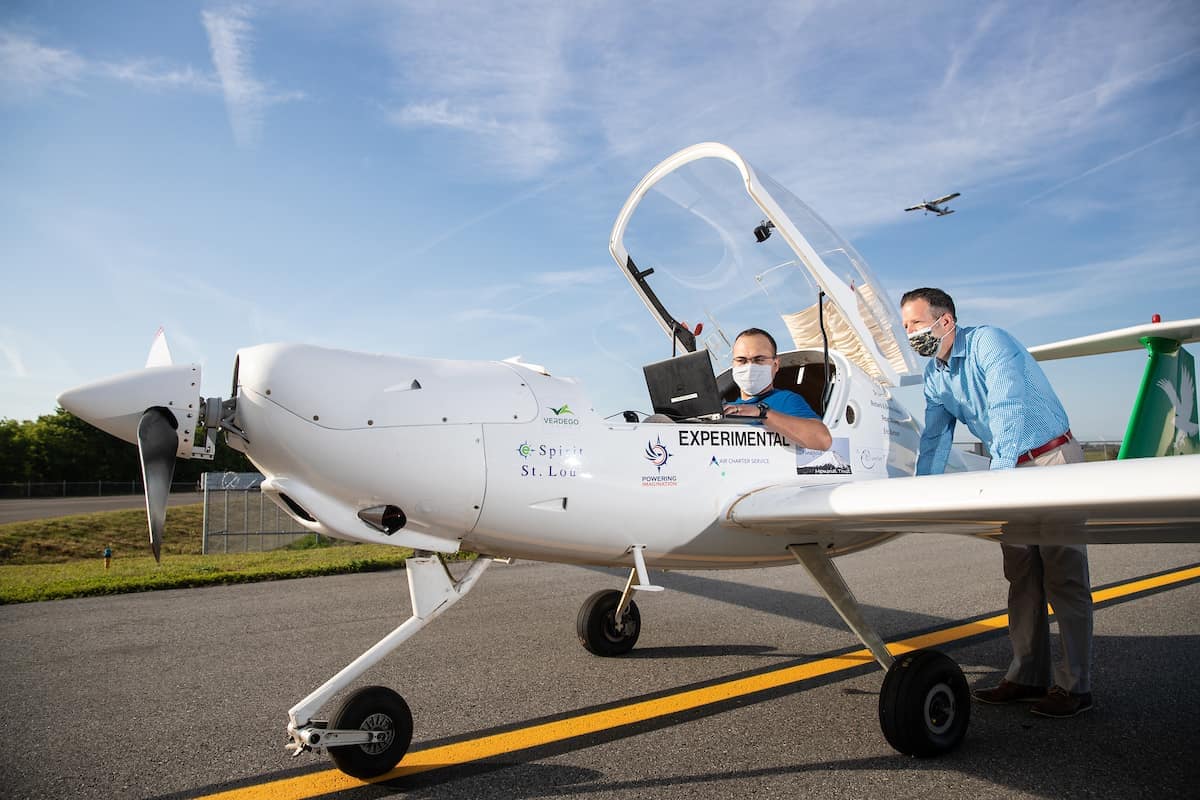Aviation Week Op-Ed: Why Teaching Sustainability Is Crucial to Aviation Education

This Aviation Week op-ed highlights the aviation industry's commitment to significantly reducing emissions of planet-warming gases from aircraft to achieve "net-zero" by 2050. Embry-Riddle Aeronautical University President P. Barry Butler, Ph.D., writes that leading aviation education institutions are researching and developing efficient plane technology and alternative fuels, while also incorporating sustainability into their curriculum to meet this goal. This essay — published in July 2021— is available to read at the Aviation Week website and below.
By P. Barry Butler
What a difference a year makes. Demand for airline travel has rapidly rebounded since the height of the pandemic. Mechanics, pilots and aviation managers are all in high demand, and once again, the industry faces a personnel shortage. A harbinger of future demand on the talent pipeline is that top aviation schools expect to replace most of their flight instructors by summer’s end because so many are being recruited by airlines.
As the industry bounces back, part of its rebirth will be a renewed focus on sustainable practices in aviation — and the curricular content needed to prepare a generation of professionals with expertise in sustainability. Aviation is swiftly moving toward a strong culture of sustainability that will drive new technologies, practices and revenue opportunities — as well as human resource needs. Also driving the need to integrate sustainability content into curriculum is that the next generation of professional pilots, aerospace engineers, aviation business professionals and technicians expect it of us.
Even amid the pandemic, many segments of the aviation industry have kept advancing their sustainability goals. For example, the plan to achieve net-zero carbon emissions by 2050, announced March 30 by nearly a dozen industry leaders who are members of Airlines for America, reflects an increasing desire to protect both the environment and profits.
Leading flight-training programs are responding to this emerging need by setting sustainability as a strategic priority for both curriculum development and research. Embry-Riddle Aeronautical University, where I work, is integrating discipline-specific content into the curriculum of its aviation, aviation maintenance, engineering and business degree programs to help graduates master sustainability concepts. We are also working to reduce resource consumption, pursuing next-generation fuel sources and finding other ways to minimize the negative environmental consequences of flight while taking economic and social considerations into account. To inspire students, we point to significant industry advancements, such as reducing CO2 emissions per air passenger and developing powerplants to operate on sustainable aviation fuel (SAF).
Helping the aviation industry achieve its most ambitious goals will require highly specialized skills: Consider Boeing’s plan to fly commercial aircraft certified to run on 100% SAF by 2030, the European aviation industry’s goal to become carbon-neutral by 2050, and a related effort, pushed by Airbus, to bring net-zero-emission hydrogen to commercial aviation. Leading engine-makers are working to advance and validate the performance of SAFs, too.
The U.S. Bureau of Labor Statistics foresees rapid growth of “green” jobs this decade, which is why Embry-Riddle offers an M.S. in Aviation and Aerospace Sustainability. To help professionals already in the industry, we offer a graduate certificate providing 12 graduate-level credits toward the master’s degree. We also have a mini-MBA certificate program that encompasses sustainability. And we recently added a new Sustainability and Environmental Engineering Lab, where students apply the principles of sustainability to study atmospheric pollution from aircraft and other sources in a holistic way.
To be relevant, all such educational programs must be informed by industry advisors. Sustainability education should also provide students with opportunities to tackle real-world problems in direct contact with business leaders. Collaborative research and internships where student employees are held accountable for outcomes tend to make theoretical principles very real.
As an example, four student interns—three in engineering and one in aviation business—are working with VerdeGo Aero, a hybrid-electric aerospace power train firm, to refine a hybrid powerplant for electric vertical-takeoff-and-landing vehicles. The students are also working on noise-mitigation technology. Intern Gianna Schock, an MBA student with a master’s degree in human factors who aspires to the C-suite, commented that “sustainability is the future.”
She’s exactly right. Advancing sustainability in aviation education will open new doors for graduates and accelerate innovation across the industry, as well-trained professionals bring a diversity of fresh perspectives to the table.
